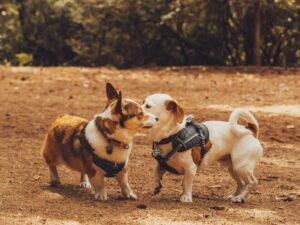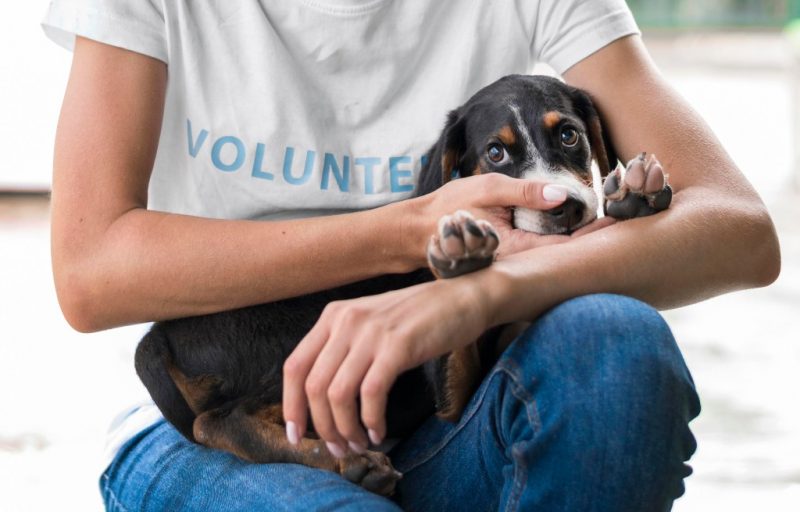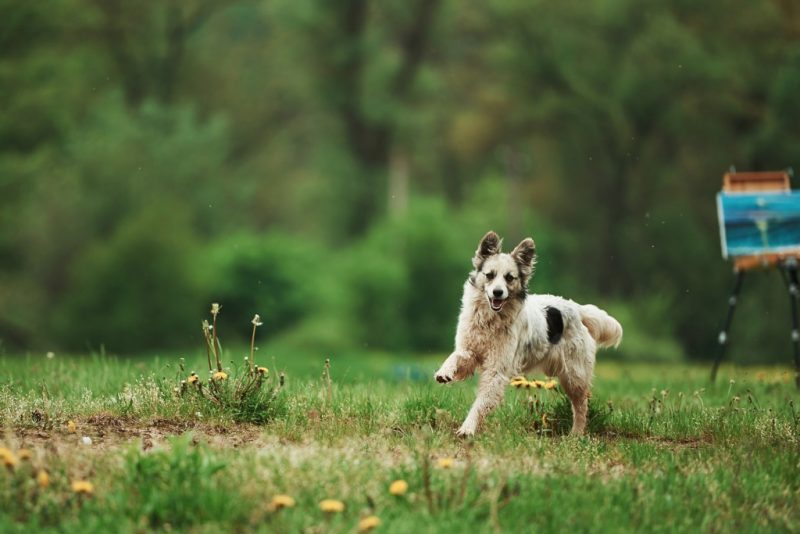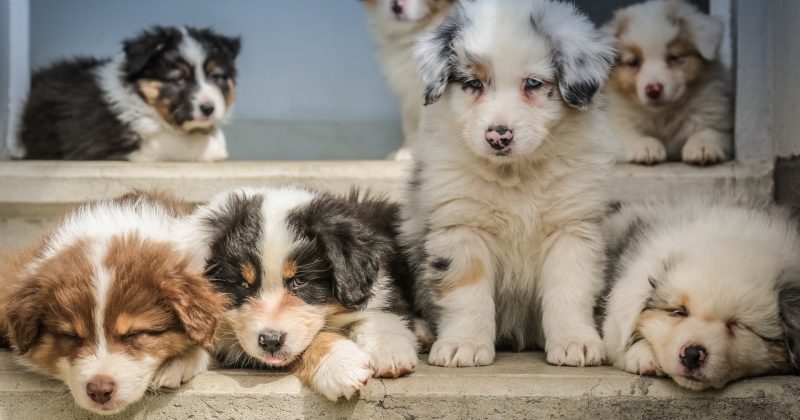Dog sneezes are wonderful, mysterious things. Hear me out. When you sneeze, it probably means you have something irritating your nose: a bit of dust, hay fever, or maybe the tickly of a cold. Some people also sneeze from bright lights, but that’s as about as exciting as sneezes get. Dog sneezing is another world altogether. They can speak volumes, serve different purposes, and tell you about their emotional and physical state.
Play Sneezing
You might have noticed your dog achoo-ing when you’re playing. No, they’re not allergic to your perfume, they’re talking to you. By sneezing they’re letting you know that they’re having fun, keeping it light, and mean no harm. Considering dog play can look a bit like fighting, it’s their way of communicating to you that everything is good. Some dogs also use sneezes to show they’re happy and excited in other situations, such as before heading out on a walk–which is adorable.
Reverse Sneezes
If you have a smaller or brachycephalic breed you might be familiar with the reverse dog sneezing. It’s a weird honking that can sound like choking, gagging or, laughing. Sometimes a dog might stand with their legs apart and head forward while doing it.
Despite being alarming the first time you witness it, reverse sneezing is pretty harmless. The sound is caused by air being quickly and loudly pulled through the nose. It can occur when they’re excited, or as a response to irritation. It’s common and rarely something to worry about. But if they can’t stop reverse sneezing, or seem to be in pain it could be more serious and require a trip to the vet.
Dog Sneezes by Design
Brachycephalic breeds–such as Frenchies and pugs– can be prone to sneezing due to their face shape and compressed nasal passages. Most of the time the cause of their sneezes are the usual suspects–allergies, irritants etc– but they might be more sensitive to them than other dogs so keep an eye out.
When Dog Sneezes Signal Sickness
If a dog keeps sneezing outside of playtime, something could be up. Their nose or respiratory tract might be irritated by something in the air. Dust, pollon, grass, dust, and some funguses can cause dogs to sneeze, as can nasal infections.
If they’re sneezing a lot, and have other symptoms such as fever, nose pain, nosebleeds, discharge, visible swelling, or they’re pawing at their nose, you need to take them to a vet. They could have the flu, allergies, or something more serious such as nasal mites or even a tumor in their nasal passages.
Don’t Forget about Their Teeth
Weirdly, their teeth can also cause dog sneezing. Dog teeth have long roots, and in the case of their third upper premolar, the root extends close to the nasal passage. If infected, this can cause irritation (and sneezing).
Is That a Dog Sneeze, a Snort, or a Wheeze ?
As mentioned, a lot of the time sneezes aren’t something to worry too much about about. But it can be easy to mistake snorts and wheezing for sneezes. If a dog is snorting or wheezing a lot, they could be struggling to breath. Again, there are a lot of reasons for this: weight, nose shape, or even an obstruction in their nose. Breathing issues should always be checked out by a vet.
A Final Word on Dog Sneezes
If you’re aware your dog is sneezing a lot, and it’s not because they’re happy, first check their nose to see if there is anything physically irritating it. If that’s all clear, think: have they had any changes in their daily habits? Are they trying a new food, taking a different walk, or in contact with new plants that could be causing allergies?
Try observing patterns when their dog sneezes start–does it start up after you turn on the heater or air conditioner? All of this information can help you and your vet work out what’s going on. And until then, bless you.
Get to know your dog even better by reading:
Everything You Need to Know about Brushing Dog’s Teeth
How Often Should You Bathe Your Dog?
Are Dog Friendships a Real Thing?
While you’re here, subscribe to our newsletter, check out our magazine, and follow us on Instagram, Facebook, and Twitter.








